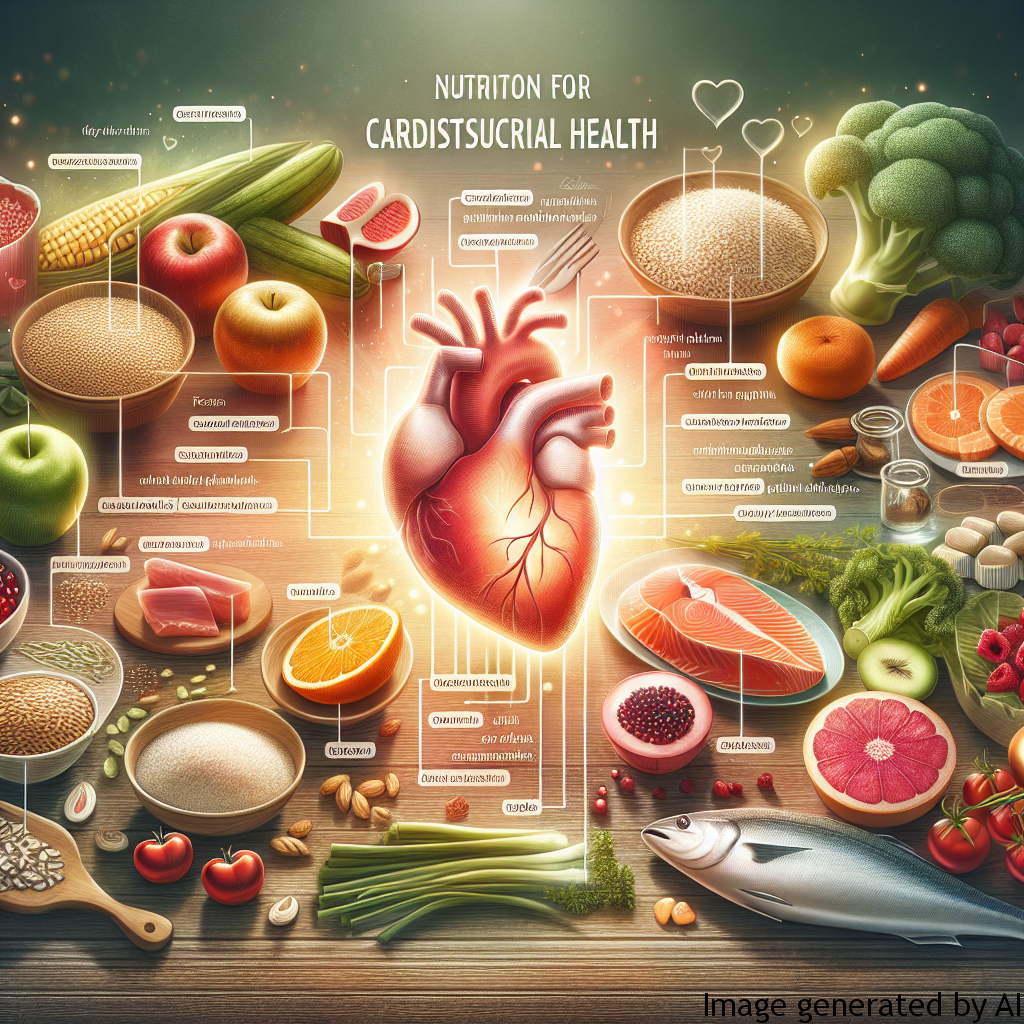Introduction
The type of foods you eat can greatly influence your heart health. Eating a heart-healthy diet is important for managing blood pressure and reducing your risk of heart attack, stroke and other cardiovascular diseases. Making simple changes in what you eat, how often you exercise, how much you weigh, and how you manage stress can help put you on the path to good cardiovascular health.
Nutrition and Cardiovascular Health
Importance of a Balanced Diet
Eating a variety of nutrient-rich foods can help improve overall health and vitality and reduce the risk of heart disease. Your diet should emphasize fruits, vegetables, whole grains, and low-fat or fat-free dairy products. Include lean meats, poultry, fish, beans, eggs, and nuts in your diet. Decrease your intake of foods high in saturated fats, trans fats, cholesterol, salt, and added sugars.
Obesity and Heart Disease
Obesity is a significant risk factor for heart disease. Maintaining a healthy weight through a balanced diet and regular physical activity can help reduce this risk. Eating a low-calorie diet filled with nutrient-rich foods can help you achieve and maintain a healthy body weight.
Examples of Heart-Healthy Foods
Including certain foods in your diet can play a significant role in heart health. For example, fatty fish like salmon are high in omega-3 fatty acids, which can reduce blood pressure, inflammation, and other cardiovascular risk factors. Nuts like almonds, walnuts, and pistachios contain fiber, protein, and healthy fats, making them great for heart health. Foods high in fiber like whole grains, fruits, and vegetables can also help reduce the risk of heart disease by helping to lower bad cholesterol levels.
Tips for Improving Cardiovascular Health
Improving your diet is one of the most effective ways of preventing heart disease. Here are a few ways:
- Eat a variety of fruits and vegetables. They are loaded with vitamins, minerals, and fiber but low in calories.
- Choose lean proteins like skinless poultry, fish, legumes, and low-fat dairy products.
- Limit processed and red meats. These are often high in salt and unhealthy fats.
- Cut down on sodas and sugary drinks which can lead to weight gain and diabetes.
- Choose healthier fats like those found in avocados, nuts, seeds, and olives.
- Exercise regularly. Physical activity is crucial for maintaining a healthy weight and lowering cholesterol and blood pressure.
Conclusion
Eating a balanced diet is a powerful tool for heart health. Not only can it improve your overall health, it can help prevent heart diseases and controls weight, other risk factors. Along with regular exercise, a healthy diet can reduce your risk of heart disease and enhance your overall quality of life. Fostering good eating habits and maintaining these behaviors throughout your life is essential for retaining good cardiovascular health.

